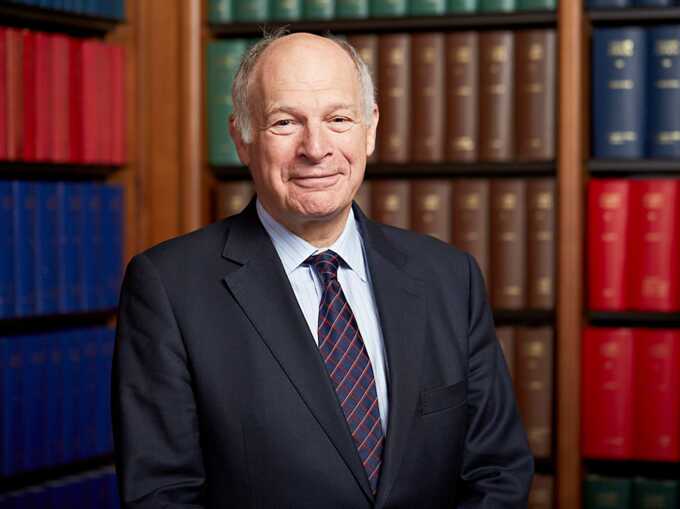Former UK Supreme Court head resigns from media freedom role due to judicial work in Hong Kong

David Neuberger was part of court panel that dismissed appeal of Jimmy Lai and six other pro-democracy activists
David Neuberger, the former president of the UK’s supreme court, has resigned from his role as chair of a legal advisory board to an international media freedom coalition, citing the “concern expressed” over his role as a judge in Hong Kong.
Lord Neuberger said he had been considering his position as chair of the high-level panel of legal experts that advises the Media Freedom Coalition (MFC), an international NGO, for several months.
He said: “I have now concluded that I should go now, because it is undesirable that focus on my position as a non-permanent judge in Hong Kong should take away, or distract, from the critical and impactful work of the high-level panel.”
On Monday, Neuberger was part of the panel on Hong Kong’s court of final appeal which unanimously dismissed a bid by Jimmy Lai and six other pro-democracy activists to overturn their convictions for taking part in a peaceful protest in August 2019.
In December, the UK was one of 24 countries to sign an MFC statement criticising the “prolonged persecution” of media figures such as Lai, a British citizen who is the former publisher of the pro-democracy newspaper Apple Daily.
Hong Kong’s former governor Chris Patten condemned Neuberger’s role in Monday’s judgment, but the current administration welcomed it. Hong Kong was handed over from British to Chinese rule in 1997, and has been ruled by Beijing as a semi-autonomous Chinese city since then.
Patten, the last British governor of the territory, said on Monday that the ruling was “unjust”. The Hong Kong government lambasted Patten’s comments and issued a strongly worded defence of Neuberger and Monday’s ruling.
Neuberger is one of three remaining British judges to serve as overseas non-permanent judges on Hong Kong’s top court. They are flown into Hong Kong on an ad hoc basis to adjudicate on appeals and are paid around £40,000 for each month-long visit.
Several British judges have resigned from their role on the Hong Kong bench because of the political situation there. In June, Jonathan Sumption and Lawrence Collins quit.
There has been increasing pressure on the remaining British judges – Neuberger, Lennie Hoffmann and Nicholas Phillips, all members of the House of Lords – to resign.
Rebecca Vincent, the campaigns director for Reporters Without Borders, said: “Foreign judges who retain their positions with the Hong Kong judiciary are sadly helping to legitimise an illegitimate system and enabling dangerous prosecutions of journalists, including Apple Daily founder Jimmy Lai. Lord Neuberger’s resignation [from the MFC panel] was therefore necessary.”
In 2020, Beijing imposed a national security law on Hong Kong, quelling months of pro-democracy protests from Hongkongers calling for universal suffrage and greater autonomy from the Chinese government. The authorities said that the law was necessary to restore stability.
Critics and international governments say that it has been used to crush dissent. Hundreds of civil society groups and activists have been targeted with the law, and this year the Hong Kong government introduced its own, homegrown security law, known as Article 23, covering treason, sedition and state secrets.
In May, 14 people were found guilty in the city’s largest national security trial of pro-democracy activists, a verdict that Sumption described as “legally indefensible”.
Neuberger is also a trustee of the charity Prisoners Abroad, which advocates for British citizens detained overseas. On Tuesday, Neuberger said he did not see a conflict between that role and his role in Hong Kong.
Read more similar news:
Comments:
comments powered by Disqus































